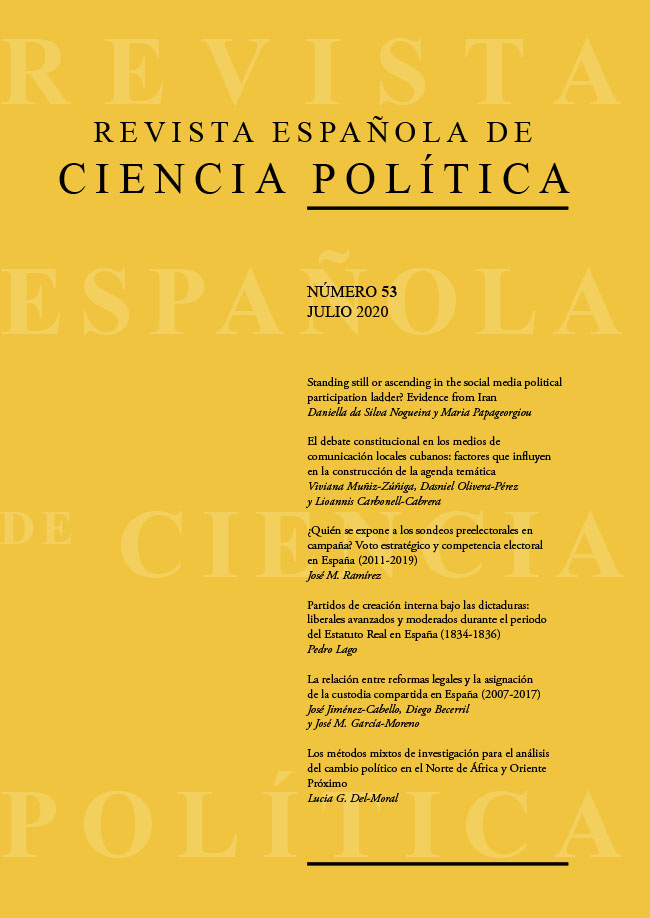Standing still or ascending in the social media political participation ladder? Evidence from Iran
DOI:
https://doi.org/10.21308/recp.53.01Palabras clave:
Redes sociales, Irán, información política online, participción política online y offline, régimen autoritarioResumen
El recurso a las redes sociales ha transformado la forma en que experimentamos la participación política. Como una herramienta de comunicación en línea, las plataformas en las redes sociales han cambiado cómo se procesa y transmite el contenido político. Estos desarrollos han estimulado las prácticas de participación política, incluso en regímenes autoritarios, a pesar de ser menos tolerantes sobre cómo pueden afectar las redes sociales a la conciencia política de la población. Este estudio trata de examinar si las plataformas de redes sociales incrementan la participación política en regímenes autoritarios, utilizando Irán como estudio de caso. Irán es un régimen autoritario que impone una censura muy dura a todo tipo de medio de comunicación y aplica severas limitaciones a la libertad de expresión. Con la introducción de la escalera de participación política en las redes sociales, este articulo representa una contribución tanto teórica como empírica al testar su aplicación. Utilizando datos primarios extraídos de encuestas a pie de calle, con una muestra representativa (n = 110) recogida en tres grandes ciudades por todo el territorio de Irán, encontramos un impacto relativamente positivo del uso de las redes sociales sobre la información y participación política. Sin embargo, el nivel de participación política offline continúa siendo bajo, lo que demuestra una influencia poco significativa. De esta forma, se han podido verificar las diferentes etapas desarrolladas bajo la escalera de participación política en las redes sociales y la posición actual de Irán en la misma.
Descargas
Publicado
Cómo citar
Número
Sección
Licencia
Derechos de autor 2020 Daniella da Silva Nogueira, Maria (Mary) Papageorgiou

Esta obra está bajo una licencia internacional Creative Commons Atribución-NoComercial-SinDerivadas 4.0.






